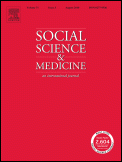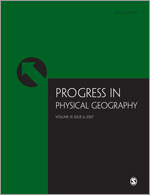
The Journal of Asian Studies is the flagship journal of the Association for Asian Studies, publishing peer-reviewed academic scholarship in the field of Asian studies. Its acceptance rate is approximately 6%. Each issue circulates over 8,200 copies, reaching a readership across the academic community and beyond.

Administrative Science Quarterly is a peer-reviewed academic journal covering the field of organizational studies. The journal was established in 1956 and is published by SAGE Publications for the Samuel Curtis Johnson Graduate School of Management at Cornell University. In 2007, it was ranked as the #16 academic journal in business by Financial Times.
Journal Citation Reports (JCR) is an annual publication by Clarivate. It has been integrated with the Web of Science and is accessed from the Web of Science Core Collection. It provides information about academic journals in the natural and social sciences, including impact factors. JCR was originally published as a part of the Science Citation Index. Currently, the JCR, as a distinct service, is based on citations compiled from the Science Citation Index Expanded and the Social Sciences Citation Index. As of the 2023 edition, journals from the Arts and Humanities Citation Index and the Emerging Sources Citation Index have also been included.
The Journal of Political Economy is a monthly peer-reviewed academic journal published by the University of Chicago Press. Established by James Laurence Laughlin in 1892, it covers both theoretical and empirical economics. In the past, the journal published quarterly from its introduction through 1905, ten issues per volume from 1906 through 1921, and bimonthly from 1922 through 2019. The editor-in-chief is Magne Mogstad.

The Geographical Review is a quarterly peer-reviewed academic journal published by Routledge on behalf of the American Geographical Society. It covers all aspects of geography. The editor-in-chief is David H. Kaplan.

Social Science & Medicine is a peer-reviewed academic journal covering social science research on health, including anthropology, economics, geography, psychology, social epidemiology, social policy, sociology, medicine and health care practice, policy, and organization. It was established in 1967 and is published by Elsevier.

Ronald John Johnston, OBE, FAcSS, FBA was a British geographer, known for elaborating his discipline's foundations, particularly its history and nature, and for his contributions to urban social geography and electoral geography. His broad scope is illustrated by the fact that he made extensive use of quantitative methods, while critically dealing with subjects of social and political relevance. Johnston authored or co-authored more than 50 books and 800 papers, and edited or co-edited a further more than 40 books. He edited The Dictionary of Human Geography and for the first four editions was its main editor.

Progress in Physical Geography is a peer-reviewed academic journal that publishes papers in the fields of Geosciences, multidisciplinary and physical geography. The journal's editors are Nicholas Clifford and George Malanson. It has been in publication since 1977 and is currently published by SAGE Publications.
Social Science Quarterly is a quarterly peer-reviewed academic journal published by Wiley-Blackwell on behalf of the Southwestern Social Science Association. The journal covers political science, sociology, economics, history, social work, geography, international studies, and women's studies. The editors-in-chief are Keith Gaddie, Kirby Goidel, and Kim Gaddie

The Journal of African History (JAH) is a triannual peer-reviewed academic journal. It was established in 1960 and is published by Cambridge University Press. It was among the first specialist journals to be devoted to African history and archaeology and was founded by John Fage and Roland Oliver. As stated on the journal's website:
The Journal of African History (JAH) publishes articles and book reviews ranging widely over the African past, from ancient times to the present. Historical approaches to all time periods are welcome. The thematic range is equally broad, covering social, economic, political, cultural, and intellectual history. Recent articles have explored diverse themes including: labour and class, gender and sexuality, health and medicine, ethnicity and race, migration and diaspora, nationalism and state politics, religion and ritual, and technology and the environment.
International Journal of Geographical Information Science is a monthly peer-reviewed scientific journal published by Taylor & Francis. The editor-in-chief is May Yuan, who succeeded Brian Lees ) in January 2017. The journal covers original research in fundamental and computational geographic information science, including applying geographical information science to monitoring, prediction, and decision making, as well as natural resources, social systems, computer science, cartography, surveying, geography, and engineering, in both developed and developing countries.
The Journal of Geographical Systems is a quarterly peer-reviewed academic journal published by Springer Science+Business Media. It covers geographical information, mathematical modeling, analysis, theory, regional science, geography, environmental sciences, planning, and decision. The journal was founded by Manfred M. Fischer and Arthur Getis, who both served as founding editors-in-chief. The current editors-in-chief are Manfred M. Fischer and Antonio Páez.
The Journal of Transport Geography is a quarterly peer-reviewed academic journal published by Elsevier in association with the Transport Geography Research Group of the Royal Geographical Society. The journal was established in 1993 and covers all aspects of transportation geography. The editors-in-chief are Elizabeth C. Delmelle and Mark Zuidgeest. The founding editor is Richard Knowles.
Cities is a bimonthly peer-reviewed academic journal published by Elsevier. It focuses on analysis and assessment of current and historical urban development and management resulting from urban planning policies, while researching solutions in the form of more effective urban policy implementations. Coverage includes developed and developing nations. The editor-in-chief is Pengjun Zhao.
Business History is a peer-reviewed academic journal covering the field of business history. It was established in 1958 by Liverpool University Press and is now published by Routledge. The editors-in-chief are Stephanie Decker, Christina Lubinski, and Niall MacKenzie.
Health & Place is a bimonthly peer-reviewed public health journal covering research on the relationship between geographic location and health. It was established in 1995 and is published by Elsevier. The co-editors-in-chief are Valorie Crooks and Michael J. Widener.
Norwegian Journal of Geography is a peer-reviewed scientific journal published by Routledge on behalf of the Norwegian Geographical Society. It covers geographical topics of interest to Norwegian researchers giving equal weight to human and natural geography. It was established in 1926 as successor of the Norsk Geografisk Aarbog, which was published from 1889 to 1921.
Political Geography is a peer-reviewed academic journal published by Elsevier covering all aspects of political geography. Its editor-in-chief is Filippo Menga.
Asian Journal of Social Science (AJSS) is a hybrid open access quarterly peer-reviewed academic journal published by Elsevier Science on behalf of the Department of Sociology and Anthropology, National University of Singapore, covering Asian studies, ranging from sociology, anthropology, cultural studies, economics, geography, history, political science, and psychology. In addition to research papers, it also publishes book reviews, research notes, and short essays. AJSS was published by BRILL Publishers before 2021. The editors-in-chief of this journal are Joonmo Son and Eric C. Thompson.






